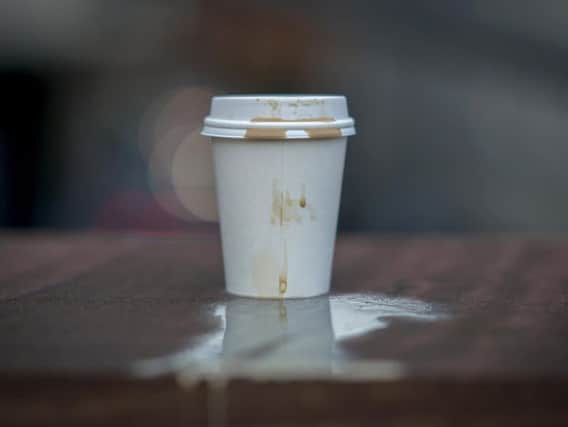Charge on disposable coffee cups promotes ‘right choice’ for consumers


Trials revealed that cafés which replaced discounts for re-usable cups with clear, equivalent charges for disposable cups significantly increased the proportion of customers switching to re-usables for on-the-go coffee and tea.
An estimated 200 million single-use coffee cups are discarded every year in Scotland.
Advertisement
Hide AdAdvertisement
Hide AdUnder the trials led by Zero Waste Scotland, four public sector cafés stopped giving discounts for re-usable cups and instead reduced the total price of a drink by the equivalent amount and charged customers that same amount for single-use cups.
The proportion of consumers switching from disposable to re-usable cups rose at all four cafés by 50 per cent on average. The findings suggest that making the cost of disposable cups clear instead of hiding that cost within the total price of the drink will do more to kick Scotland’s disposable coffee cup habit than offering discounts.
Lead author Michael Lenaghan said: “We have shown that it isn’t necessary to charge people more for their coffee to persuade them to ditch a disposable cup in favour of a re-usable one.
You just need to put a clear price on the cup and let consumers decide.
“Single-use packaging has an environmental and a financial cost but that financial cost is usually hidden from view, so consumers don’t have all the information they need to make informed purchasing decisions.”
He added: “Behavioural science has shown that people will make more effort to avoid a cost – such as a 25p charge on single-use cups – than they will to obtain a gain of equal value, like a 25p re-usable cup discount.”
Earlier this year the Scottish Government’s expert panel on environmental charging and other measures said an extra 20p to 25p should be charged for each disposable cup sold to cut waste, while the sale of non-recyclable expanded polystyrene/PVC cups should be banned in line with the EU Single-Use Plastics Directive by 2021.
The NHS in Scotland bought more than 189 million single-use plastic cups over the past five years, costing £1.7 million.
